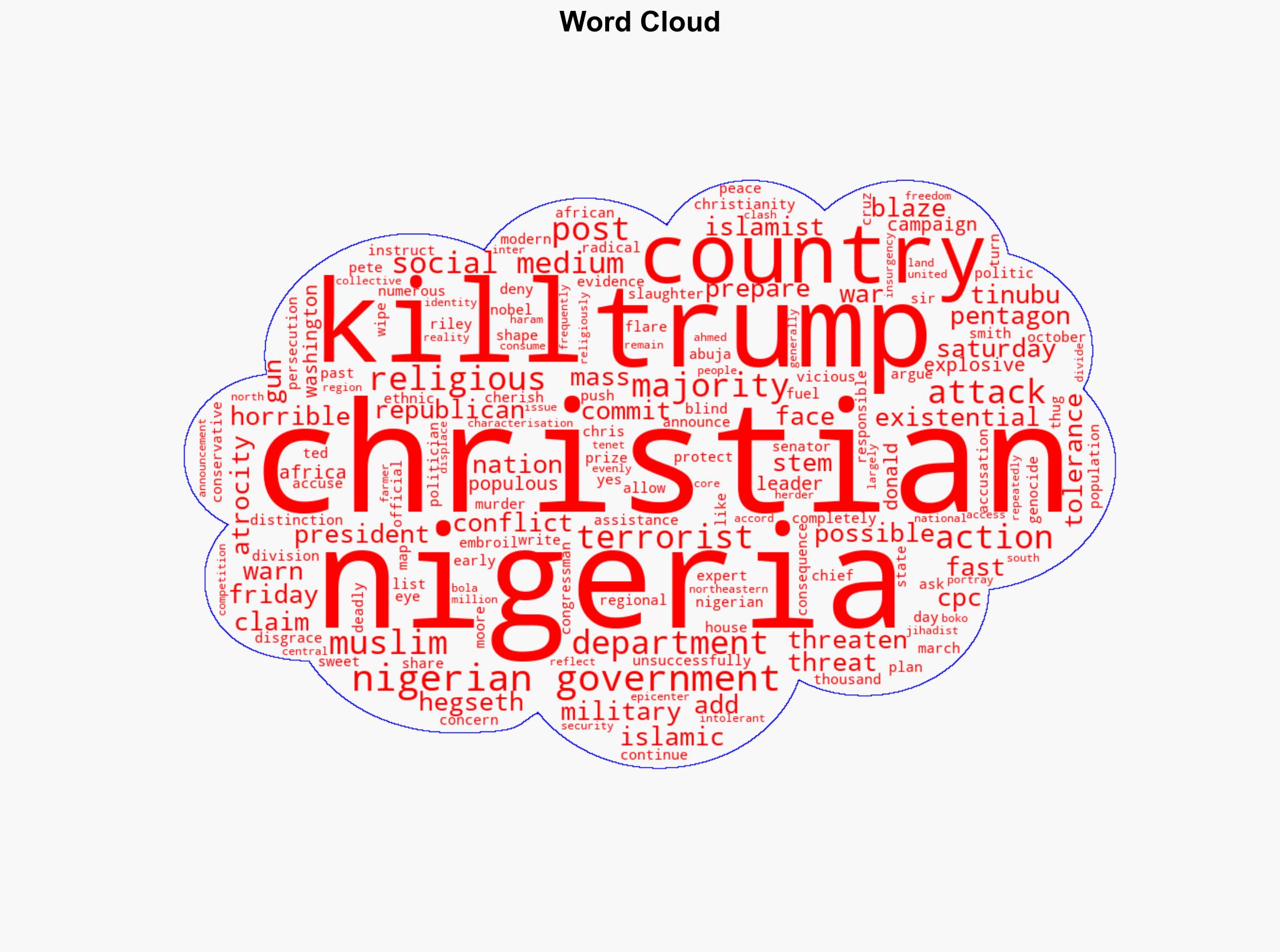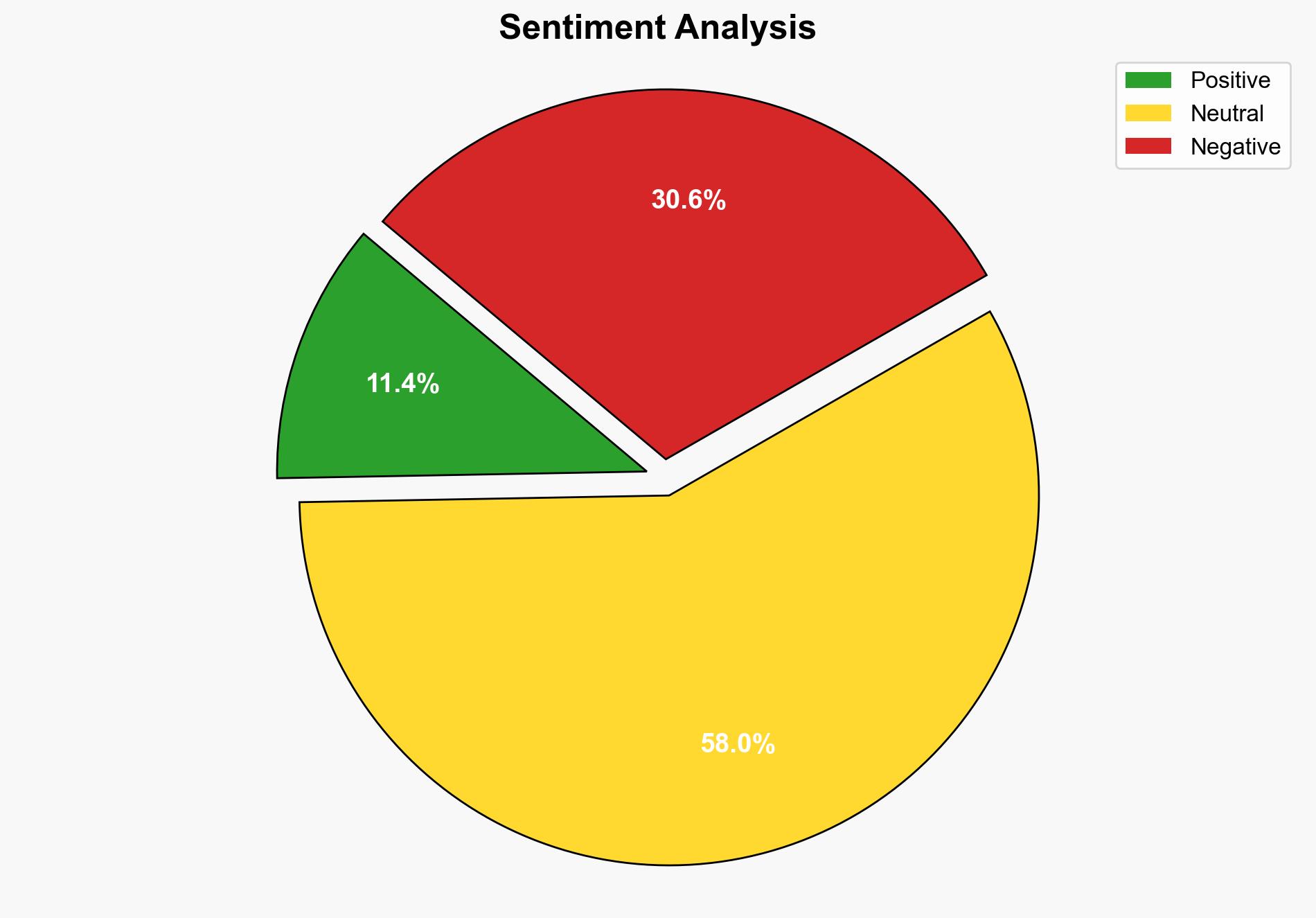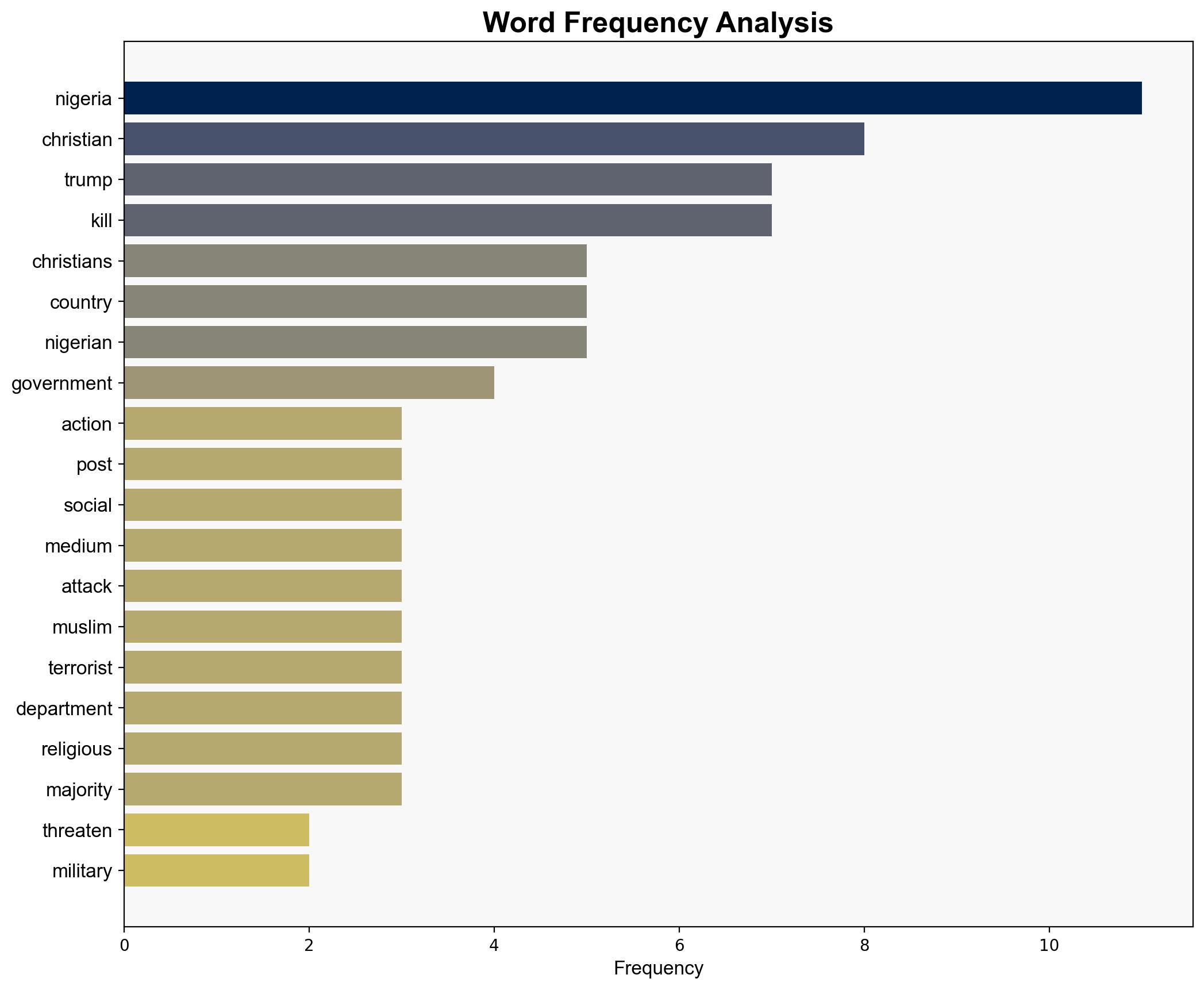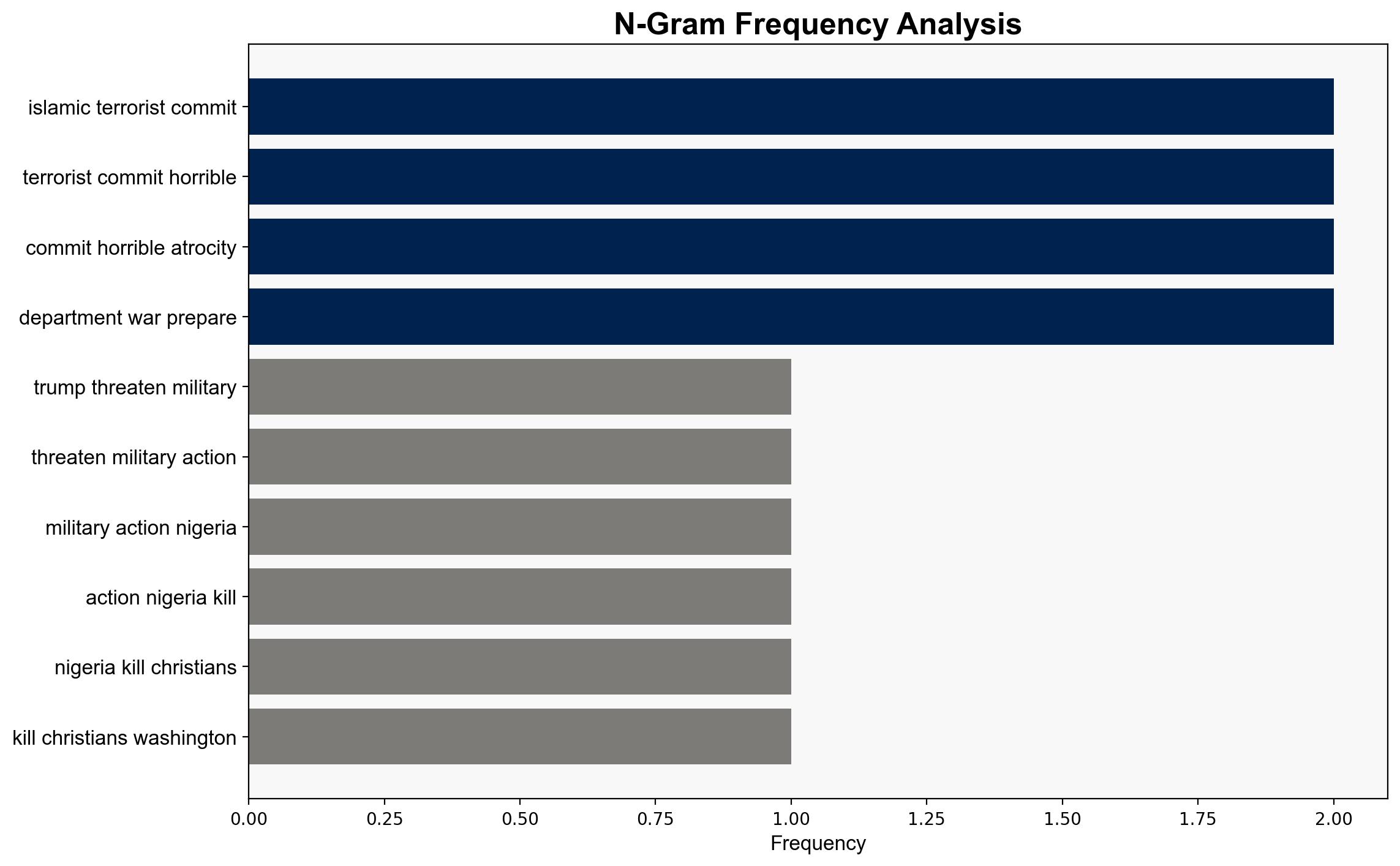Trump threatens military action in Nigeria over killing of Christians – Hurriyet Daily News
Published on: 2025-11-02
Intelligence Report: Trump threatens military action in Nigeria over killing of Christians – Hurriyet Daily News
1. BLUF (Bottom Line Up Front)
The most supported hypothesis is that Trump’s threats are primarily a political maneuver aimed at bolstering his image among conservative and Christian constituencies, rather than an imminent military action. Confidence level: Moderate. It is recommended to monitor U.S. military movements and diplomatic communications for any shifts in policy or rhetoric that could indicate a change in strategy.
2. Competing Hypotheses
1. **Hypothesis A**: Trump’s threats of military action in Nigeria are a genuine indication of potential U.S. intervention aimed at protecting Christians from Islamist violence. This hypothesis suggests a shift towards a more aggressive U.S. foreign policy in Africa, potentially involving military planning and deployment.
2. **Hypothesis B**: The threats are primarily a political strategy to appeal to domestic audiences, particularly conservative and Christian groups, without any real intention of military engagement. This hypothesis views the rhetoric as part of a broader narrative to influence public opinion and garner support.
Using Analysis of Competing Hypotheses (ACH), Hypothesis B is better supported due to the lack of concrete military movements and the historical context of similar rhetoric being used for domestic political gain without subsequent action.
3. Key Assumptions and Red Flags
– **Assumptions**: Hypothesis A assumes that the U.S. is willing to engage militarily in a complex and distant conflict, which historically has been avoided. Hypothesis B assumes that Trump’s primary motivation is domestic political gain.
– **Red Flags**: The absence of specific military plans or international diplomatic efforts supporting Hypothesis A. The potential for cognitive bias in interpreting Trump’s statements as purely political without considering possible strategic shifts.
– **Inconsistent Data**: Lack of corroborating evidence from other credible sources about imminent military action.
4. Implications and Strategic Risks
– **Escalation Risks**: Actual military intervention could destabilize the region further, exacerbate religious tensions, and strain U.S.-Nigeria relations.
– **Geopolitical Impact**: Increased U.S. military presence in Africa could provoke responses from other global powers with interests in the region, such as China or Russia.
– **Domestic Impact**: Continued rhetoric without action may lead to credibility issues for U.S. leadership both domestically and internationally.
5. Recommendations and Outlook
- Monitor U.S. military and diplomatic channels for any indications of policy shifts towards Nigeria.
- Engage with Nigerian authorities to address the root causes of violence and explore non-military solutions.
- Scenario Projections:
- **Best Case**: Diplomatic efforts lead to a reduction in violence and improved U.S.-Nigeria relations.
- **Worst Case**: Military intervention leads to regional instability and international backlash.
- **Most Likely**: Continued rhetoric without significant policy change, maintaining status quo.
6. Key Individuals and Entities
– Donald Trump
– Pete Hegseth
– Chris Smith
– Ted Cruz
– Riley Moore
– Bola Ahmed Tinubu
7. Thematic Tags
national security threats, geopolitical strategy, counter-terrorism, regional focus





